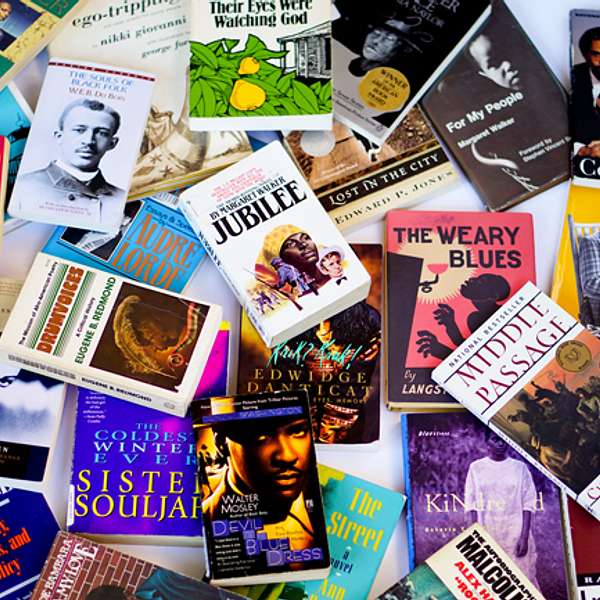
Remarkable Receptions
A podcast about popular and critical responses to African American novels, artistic productions, and more.
Remarkable Receptions
Born in Blackness and São Tomé -- ep. by Howard Rambsy II
A short take on "one of the most important economic circuits in the history of the world.”
Episode by Howard Rambsy II
Read by Kassandra Timm
In the process of producing his 2021 book Born in Blackness: Africa, Africans, and the Making of the Modern World, 1471 to the Second World War, Howard French took a research trip from Portugal to São Tomé, an island near the Equator, off the west coast of Africa. His flight included a layover in Ghana.
Notably, as French pointed out, a trip from Portugal to Ghana to São Tomé “retraces one of the most important economic circuits in the history of the world.”
You’re listening to Remarkable Receptions — a podcast about popular and critical responses to African American novels and more.
Born in Blackness represents a tremendous contribution to the study of European and African interactions, the slave trade in and beyond Africa, and overall world history. Howard French explains how the forced migration and labor of millions of enslaved Africans significantly shaped modernity in ways that have been severely overlooked.
As one powerful example of historical oversight and lack of public knowledge about the development and rapid expansion of the Transatlantic Slave Trade, French discussed São Tomé.
When the Portuguese established a colony on the small island of São Tomé in the late 15th century, they did so, explains French, for the purposes of supplying food and other provisions to their main colony in Ghana, developing a Black labor force of captives from continental Africa, and producing sugar for European markets.
For Portugal, the colony at São Tomé became an incredible financial success, which meant a terrible toll of human exploitation and suffering for captive Africans. By 1504, French points out, 900 enslaved Africans were shipped to São Tomé, and by the 1520s, the island imported approximately 2,000 captives each year.
Ironically, major gains for some represented profound, immeasurable losses for others. The fortunes of São Tomé for Europeans and deeply devastating consequences of São Tomé for Africans served as a notorious model for the most effective ways to ship enslaved people from the African mainland to Europe and the Americas.
Equally important, the practices on São Tomé, observes French, established the modern plantation model of sugar production, which would thrive in the Americas. These sugar plantations were, in French’s words, “designed for and run exclusively on the basis of the violent domination of Black African slave labor.”
The enormous wealth and knowledge that Portugal gained from São Tomé paved the way for future conquest and colonization in the Americas. And other European countries followed suit.
When French visited São Tomé while researching his book, he searched for memorials or some sort of public recognition acknowledging the devastation of black people that took place on the island. His search was in vain. Aside from French’s invaluable book Born in Blackness, African enslavement and labor on São Tomé which gave way to modernity have unfortunately received an unremarkable reception.
*********************************
This episode was written by Howard Rambsy. The episode was edited by Elizabeth Cali.
*********************************
This podcast, Remarkable Receptions, is part of the Black Literature Network, a joint project from African American literary studies at Southern Illinois University Edwardsville and the History of Black Writing at the University of Kansas. The project was made possible by the generous support of the Mellon Foundation. For more information, visit blacklitnetwork.org.